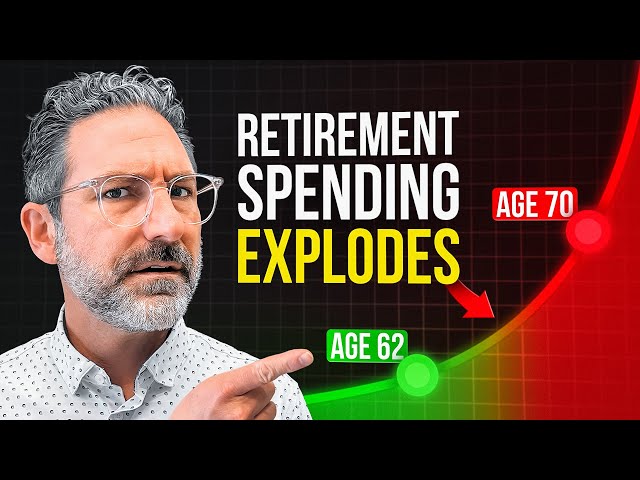Planning for retirement is a vital part of ensuring a comfortable future. However, many people overlook critical warning signs that could jeopardize their financial stability.
You might have a solid nest egg and think you're set for life, but there are often some signs that could indicate your retirement plan is on shaky ground. These signs are not commonly discussed on the internet, but understanding and addressing them can be the difference between a comfortable retirement and financial stress in your later years.
Based on my experience as a Certified Financial Planner, there are five signs your retirement plan might not last past age 70 and how you can address these issues to secure your retirement.
1. Debt Repayments
Not all debt is bad, but carrying significant debt into retirement, especially high-interest debt like credit cards, can be detrimental. It's crucial to avoid a recurring debt cycle, as it can severely impact your financial health during retirement.
What to do:
- Use the snowball debt elimination calculator" at dinkytown.net to organize and plan your debt repayment.
- Determine how much extra you can pay monthly to accelerate your debt repayment.
- Set up automatic payments to ensure consistent progress.
2. Aggressive Withdrawal Strategies
Spending a high percentage of your retirement savings each year can quickly deplete your funds. For instance, withdrawing $100,000 annually from a $1 million portfolio equates to a 10% withdrawal rate, which is unsustainable.
What to do:
- Explore different withdrawal strategies such as the 4% rule, Bucket Strategy, or Risk-Based Guardrails.
- Consider using risk-based guardrails, which help you adjust your spending based on market performance, ensuring you don’t overspend or underspend unnecessarily.
3. Poor Portfolio Allocation
Having a poorly diversified portfolio can expose you to unnecessary risk. Many people unknowingly concentrate their investments in specific sectors, leading to volatility.
What to do:
- Ensure your portfolio is diversified across various asset classes and sectors.
- Regularly rebalance your portfolio to maintain a proper allocation, selling high-performing assets and buying underperforming ones to reduce risk.
4. No Emergency Funding
Relying solely on retirement accounts like 401(k)s or IRAs without having liquid emergency funds can force you to withdraw from these accounts under unfavorable conditions, incurring taxes and penalties.
What to do:
- Save at least six months’ worth of living expenses in an FDIC-insured account.
- Establish a fixed monthly savings plan to build your emergency fund.
- Replenish your emergency fund as needed by harvesting gains or reallocating resources from other accounts.
5. Ignoring Healthcare Costs
Healthcare expenses can significantly impact your retirement savings. It’s essential to plan for regular medical needs, potential gaps before Medicare eligibility, and long-term care.
What to do:
- Contribute to a Health Savings Account (HSA) and budget for healthcare expenses before retirement.
- Include Medicare premiums and out-of-pocket medical costs in your retirement budget.
- Plan for long-term care needs to avoid unexpected financial strain.
Conclusion
Recognizing these five warning signs and taking proactive measures can help ensure your retirement plan lasts beyond age 70. Analyze your situation, implement the suggested steps, and consider seeking professional advice to design a comprehensive retirement plan.
Click the link up above to watch a video that explains a bit more about each of these signs.



%20(2).jpg)





.jpg)




